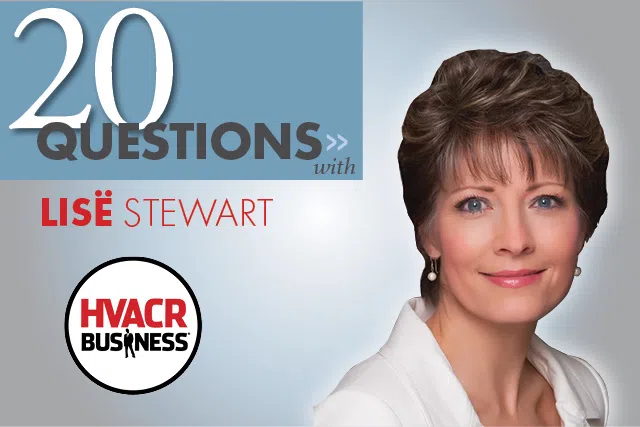1. When did you start your career?
I started my first business 28 years ago, but the highlight of my career has been the founding of Galliard Group in 2004. It is the culmination of all of my years of experience and, more importantly, it is made up of a great team that shares the same mission, vision, and values.
2. What attracted you to helping family run businesses plan for succession?
Leadership development and planning for succession has always been a core element of our practice, and about 10 years ago we noticed a significant gap in the market — small businesses weren’t getting access to the help that they needed to prepare their businesses and their families for the future.
3. Why not?
Three reasons: owners reported that consulting services were too expensive; they didn’t know where to turn for help; and the effort needed to coordinate all of the aspects of succession and estate planning was too daunting.
4. How did you fill this need?
This was a perfect niche for us. We could provide low cost, easy-access services that provided high value by leveraging local talent and user-friendly materials.
5. How many family business owners have a succession plan?
Less than 15%. An owner may have identified a successor from within their family or management team, or has decided to sell, but these options don’t constitute a succession plan.
6. What common mistakes do owners make?
Most leave their planning until very late in their career. To plan and execute a solid transition that ensures that the owners are able to draw resources from their company (which is often their greatest source of wealth), we generally recommend allocating five to seven years to the process.
7. How can owners correct the problem?
Planning is the key — along with clear and direct communication about the needs and wants of the family and the business and then, most importantly, effective execution.
8. What are owners typically looking for?
Plans that fit their needs, reflect their values, and support their long-term financial goals. Through Galliard Group, we help develop a strategic plan, with a wide range of options and are there to advise and support them through the process.
9. What are the most common succession scenarios?
There are lots of options. We might identify, train and mentor the next generation of leaders — family and/or management team members. Or suggest an Employee Stock Ownership Program, coordinate equity investment relationships, or hire outside managers to grow and lead the company.
10. Is there a universal answer to help owners with regard to succession?
Yes, planning. It’s the key. Owners must recognize they will exit their business by design or default — but it will happen.
11. Are owners often unrealistic about the value of their companies?
Yes! Owners put their heart and soul into their businesses and want to be compensated for intangibles, like the history, relationships, and the long hours that made the company what it is.
12. Do buyers care?
Yes, but cash is king. What they want to see is a history of profit. They will buy “potential profit” but it has to be substantiated by healthy cash flow. Owners need to get an objective valuation done and then really look for ways to build value and stability.
13. How do you get them an honest valuation?
We have experienced people in our national network who understand the needs of small businesses and offer practical valuation services at affordable prices.
14. What is the process like?
We recommend a basic valuation that gives us the most important information. This is often the beginning of the planning process. We ask, what is the value today, and where do we need it to be in the future?
15. How do owners typically react?
It depends on the timing. Those who have planned and want to sell in the future see they have time to build more. Those who haven’t planned and want to exit soon are sometimes disappointed.
16. What percentage of companies pass leadership onto the next generation?
About 80% of U.S. business owners report that they want to pass to the next generation, but only about 30 to 35% are able to do so.
17. What is the likelihood they will succeed?
Depending on the data source, the numbers are either low or really low! Approximately two to three years after a transition has occurred, less than 20% of businesses report that the transition was successful.
18. Why is this percentage so low?
Again, it is often an issue of planning and information. Sometimes owners will be convinced to sell their business when it just isn’t ready. Eager business brokers may suggest that succession consists of merely finding a new owner, but this is rarely a recipe for long-term success.
19. How often do family members end up in litigation because there was no plan in place?
It is hard to put a figure on this, but even if litigation is not the result, rifts in families that result in severed family ties and lack of communication and trust is a disastrous result. With a good plan and open lines of communication, this doesn’t have to happen.
20. What do you want to tell every business owner?
Successful succession is about the long-term success of the business, not just the replacement of one key individual. A well planned and executed succession process will include a comprehensive estate plan for the owners to ensure their financial stability, a strategic plan for the business to build value and ensure growth. And, good plans identify and train leaders in accordance with the company’s business goals and growth potential.
Terry has over 23 years of experience in the advertising and publishing industries. He began his career with a business-to-business advertising agency. Prior to forming Hutchinson Tanker Ltd. and HVACR Business in January 2006, he spent 20 years with large national publishing and media firm where he was the publisher of several titles in the mechanical systems marketplace.
In addition to his experience in advertising and publishing, Terry has worked closely with numerous industry-related associations over the years including AHRI, AMCA, and ABMA. He has also served on the Board of Directors for the American Boiler Manufactures Association (ABMA) and as chairman, for both the Associates Committee and the Marketing Communications Committee of ABMA.






